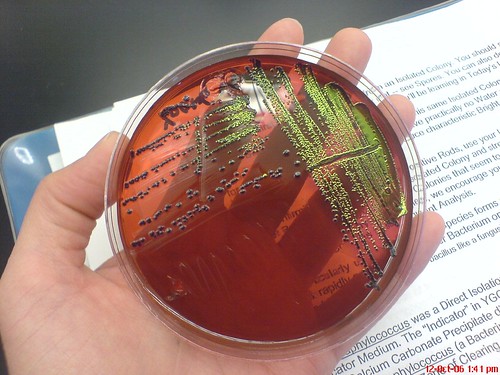-
'A fascinating new study on the types of people who stalk or harass the British Royal Family has just been published online by the journal Psychological Medicine.
A group of forensic psychologists examined, by hand, twenty thousand files held by SO14, the Metropolitan Police Service's Royalty Protection unit, to study people who had made inappropriate approaches or communications with the British royals.
This is the classification of harassers and stalkers by motivation'
-
Deeply weird discovery. Ain't nature wonderful.
Tag: bacteria
Microcosm by Carl Zimmer
Full title: Microcosm: E. Coli and the New Science of Life. The bacteria Escherichia coli is best known for occasionally causing food poisoning outbreaks, but most strains of it are harmless and indeed a normal part of our gut flora. It’s also one of the most-studied life forms on earth because, like fruit flies and white mice, they are used as a standard laboratory research subject. So Zimmer has been able to use E. coli as a way of looking at a whole range of related topics: evolution, cell biology, genetic engineering and so forth.

As I would expect from him, he writes clearly and well, and the book is certainly interesting, but I wasn’t as excited by it as I expected. The material was broadly familiar: I wouldn’t claim to know the subject well — I only know the bits and pieces I’ve picked up in other popular science books and New Scientist — but there weren’t that many wow moments when I learnt something surprising and new. Or perhaps it’s just that I’m not too excited by bacteria.
I do tend to find microbiology rather hard going. It’s not that it’s too conceptually difficult, I think, at least at the level it’s being presented here; it just doesn’t seem to stick in my head. I think it’s partially that I can’t visualise the action, and partially that there are all these long names for enzymes and proteins and I can’t keep track of them.
This book is pretty good, but if you haven’t read anything by Zimmer, I’d suggest you read Parasite Rex first, because that’s one of my favourite science books ever.
» The photo, Metallic green E. coli on EMB plate, was posted to Flickr by YW Lim and used under a by-nc-nd licence.
Links
-
‘A laboratory study has found that food pathogens survive being eaten by protozoa living on spinach and lettuce. The temporary asylum might help bacteria stick onto leafy greens or resist efforts to kill them before packaging.’
-
‘A spectacularly preserved new Chinese fossil called Eoconfuciusornis is a missing link between Archaeopteryx and more advanced birds that have been discovered in China.’ That is one amazingly well-preversed fossil.
-
Testing sewage to see what drugs people have been taking.